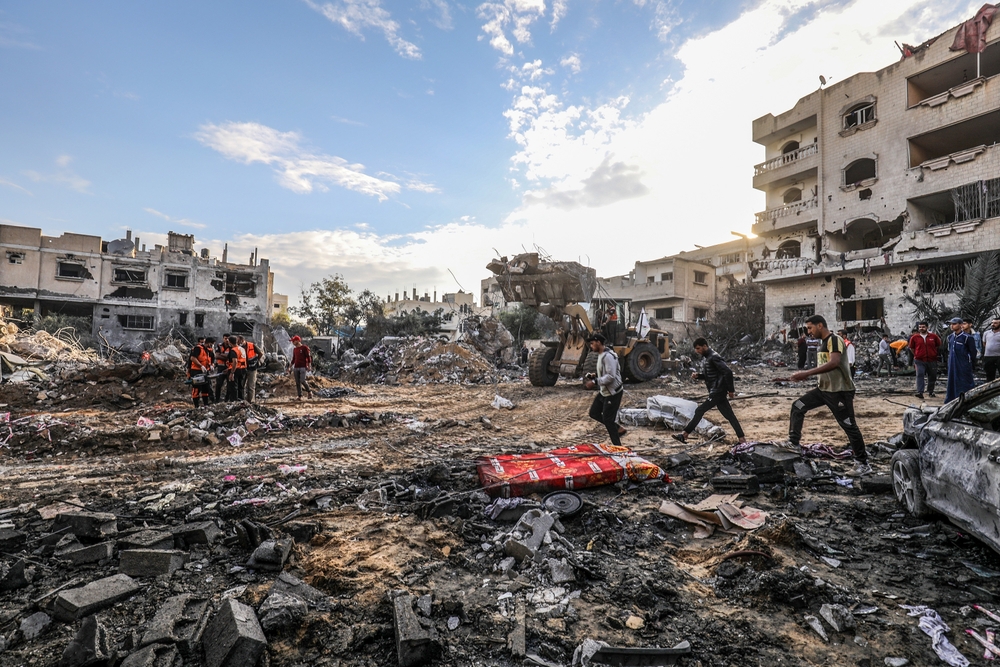Deadliest Bombardment in 17 Months
Israel launched widespread airstrikes across Gaza early Tuesday, killing over 400 Palestinians and breaking a ceasefire in place since January. The strikes, ordered by Prime Minister Benjamin Netanyahu, marked the deadliest attack in the 17-month conflict with Hamas. “Israel will, from now on, act against Hamas with increasing military strength,” Netanyahu’s office stated.
The Israeli military ordered residents in eastern Gaza to evacuate, signaling a potential ground invasion. Aid organizations warn that supplies are depleting rapidly after Israel cut off all food, medicine, and fuel to Gaza’s 2 million residents.
Hostages in Jeopardy
Hamas accused Netanyahu of putting hostages’ lives at risk for political gain. Senior Hamas official Izzat al-Risheq called the decision “a death sentence” for the remaining captives, adding that Netanyahu was trying to “save his far-right governing coalition.” Hamas confirmed that at least six of its senior officials were killed in the attacks.
The Hostages and Missing Families Forum condemned the Israeli government’s move, stating, “We are shocked, angry and terrified by the deliberate dismantling of the process to return our loved ones from the terrible captivity of Hamas.”
Hospitals Overwhelmed by Wounded
Strikes targeted homes, a refugee camp, and a school-turned-shelter. At Gaza’s European Hospital, a single strike wiped out 17 members of a family, including five children. At Khan Younis’s Nasser Hospital, children overwhelmed the pediatric ward. “We woke up to an airstrike frenzy. The windows were shaking, the doors flew open,” said Dr. Tanya-Haj Hassan, a volunteer with Medical Aid for Palestinians.
Gaza’s Health Ministry reported 404 killed and over 560 wounded in the strikes. Ministry official Zaher al-Waheidi described the day as “the deadliest in Gaza since the start of the war.” Since October 2023, the war has killed over 48,500 Palestinians, with most casualties being women and children.
US Backs Israel, Blames Hamas
Despite the humanitarian crisis, the White House blamed Hamas for the renewed violence. National Security Council spokesman Brian Hughes stated, “Hamas could have released hostages to extend the ceasefire but instead chose refusal and war.” However, the original ceasefire deal did not require Hamas to release more hostages for an extension.
An Israeli official, speaking anonymously, said the military was expanding operations beyond airstrikes, targeting Hamas infrastructure. Meanwhile, Israeli forces continued raids in the West Bank, arresting 13 suspected militants and killing one.
Ceasefire Collapses Over Disputed Terms
The ceasefire, which began in January, resulted in Hamas releasing 25 hostages and the remains of eight others in exchange for 1,700 Palestinian prisoners. The second phase of the deal was supposed to free the remaining 24 hostages and lead to an end to the war.
Instead, Israel demanded Hamas release half of the remaining captives before further negotiations. Hamas refused, insisting that both sides honor the original terms. While Israeli troops had fired on Palestinians near restricted areas during the ceasefire, major hostilities had ceased until Tuesday’s strikes.
Netanyahu Faces Political Pressure
As Netanyahu faces mounting criticism, protests erupted over his handling of the war and hostage crisis. His far-right coalition partners, who oppose any truce with Hamas, rejoined his government after the strikes. Some far-right lawmakers have even called for Gaza’s depopulation and the reestablishment of Jewish settlements.
Critics argue that Netanyahu’s decision to return to war helps him avoid the difficult negotiations required for peace. Mass protests are expected in the coming days, as calls grow louder for a ceasefire and the safe return of hostages.
The War Continues
With renewed fighting and a humanitarian crisis worsening in Gaza, the future remains uncertain. Israel insists it will not end the war until Hamas is dismantled and all hostages are freed. However, balancing military objectives with mounting political and humanitarian concerns may prove increasingly difficult.


